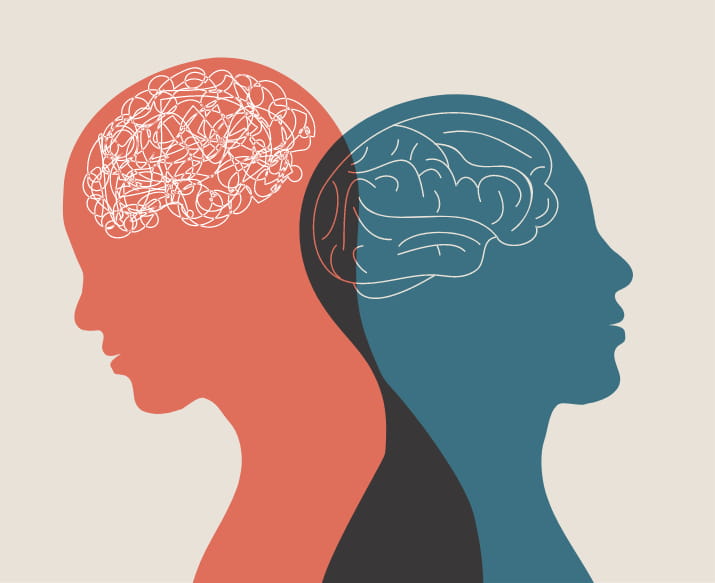Clinical Psychologists Vs Psychiatrists: Trick Differences You Should Know
The distinction between professional psychologists and psychoanalysts is critical for individuals seeking psychological health and wellness care, as each expert deals distinct competence shaped by their educational backgrounds and treatment methodologies. This distinction elevates crucial concerns about which professional may be ideal fit for various mental wellness demands.
Educational History
Numerous individuals looking for psychological health and wellness solutions might wonder concerning the distinctions in educational backgrounds between scientific psychologists and psychiatrists (clinical psychologists kew Melbourne). The distinctions are necessary and significant for recognizing the roles each expert plays in psychological health and wellness care

In contrast, psychiatrists are clinical physicians (M.D. or D.O.) who complete a four-year medical level followed by a residency in psychiatry, which lasts an extra 4 years. Their medical training furnishes them to recognize the organic aspects of psychological disorders, allowing them to suggest drugs and provide a medical point of view on therapy.
These varying educational courses highlight the one-of-a-kind know-how each professional offers the field, forming their strategies to person, medical diagnosis, and therapy treatment (clinical psychologists kew Melbourne). Comprehending these differences is important for people browsing the psychological health and wellness system

Treatment Methods
Varied therapy approaches define the practices of medical psychologists and psychiatrists, reflecting their distinct training and areas of knowledge. Their focus is on emotional and emotional assessment, treatment, and the growth of coping techniques to attend to numerous psychological health problems.
On the other hand, psychiatrists are distinctly certified to identify and deal with mental wellness conditions via a combination of psychiatric therapy and pharmacotherapy. Their medical training enables them to prescribe drugs, which can be vital for taking care of conditions such as schizophrenia, bipolar illness, or extreme clinical depression. Psychiatrists usually take a more biomedical technique, considering the biological, emotional, and social variables influencing an individual's mental wellness.

Role in Mental Healthcare
The duties of medical psychologists and psychiatrists in psychological health care are corresponding, mirroring their unique training and knowledge. Clinical psychologists primarily concentrate on the analysis, diagnosis, and treatment of emotional problems through various healing methods, consisting of cognitive-behavioral therapy (CBT), interpersonal therapy, and psychoeducation. Their training emphasizes recognizing human behavior, emotional performance, and the restorative process, enabling them to provide evidence-based treatments customized to individual needs.
On the other hand, psychiatrists are clinical doctors who specialize in the medical diagnosis and treatment of psychological health disorders, usually employing a biomedical approach. They can recommend medications to handle psychiatric symptoms and are educated to think about the physiological elements of mental health and wellness, such as neurobiology and pharmacology. This clinical point of view permits psychiatrists to resolve complicated instances that might need a mix of medication monitoring and psychotherapy.
Together, scientific psychologists and psychoanalysts create an extensive mental healthcare structure, resolving both psychological and medical demands. Partnership in between these professionals makes certain that individuals receive holistic treatment, inevitably boosting therapy outcomes and boosting the lifestyle for individuals experiencing psychological health obstacles.
Sorts Of Problems Dealt With
While both scientific psychologists and psychoanalysts attend to a vast variety of psychological health disorders, their strategies and areas of proficiency often dictate the certain conditions they deal with. Professional psychologists primarily concentrate on the analysis and treatment of psychological, behavior, and cognitive disorders with psychotherapy.
In comparison, psychoanalysts are clinical physicians that can recommend medicines and have specialized training in the biological aspects of mental health. They typically manage extra complicated psychiatric conditions that more information might need medicinal intervention, such as schizophrenia, bipolar affective disorder, extreme depression, and compound utilize conditions. Psychoanalysts may integrate drug administration with psychotherapy yet generally concentrate on the biochemical and medical components of psychological health issues.
Understanding these distinctions can assist individuals look for the appropriate care tailored to their certain mental health and wellness requirements, ensuring they get the most effective therapy for their conditions.
Insurance Policy and Expense Considerations
Browsing insurance coverage and cost considerations is an important element for people seeking psychological health and wellness services from scientific psychologists or psychoanalysts. Both careers may accept various insurance plans, yet the degree of coverage can differ substantially. Psychiatrists, that often recommend medicine, may have various billing techniques contrasted to medical psychologists, that commonly focus on psychotherapy.
Insurance reimbursement for psychiatric solutions could be extra favorable due to the medical nature of their technique. Individuals may come across higher deductibles or co-pays when speaking with a psychiatrist. In contrast, clinical psycho therapists might provide solutions billed under mental wellness advantages, which can cause reduced out-of-pocket prices, relying on the insurance firm's policy.
Moreover, individuals should take into consideration the frequency and duration of therapy sessions when evaluating prices. While psychoanalysts could use shorter, medication-focused gos to, clinical psychologists usually take part in longer sessions committed to healing techniques.
Ultimately, recognizing the certain terms of one's insurance policy strategy, consisting of network availability, insurance coverage limits, and pre-authorization demands, is vital. Patients are encouraged to contact their insurance policy supplier to clear up benefits and explore alternatives for inexpensive psychological health and wellness treatment.
Conclusion
In summary, the differences between professional psychologists and psychoanalysts are important for notified decisions concerning mental health and wellness care. Educational internet background, therapy techniques, and functions in mental wellness considerably vary between the 2 careers.
The difference between professional psychologists and psychiatrists is essential for people looking for mental health treatment, as each professional offers unique knowledge formed by their educational backgrounds and therapy methods.The duties of medical psychologists and psychoanalysts in psychological wellness treatment are complementary, showing their distinct training and proficiency.While both you can find out more medical psycho therapists and psychiatrists address a wide range of psychological health conditions, their techniques and areas of proficiency usually dictate the details problems they treat.Browsing insurance coverage and price factors to consider is a critical aspect for people looking for psychological health and wellness services from professional psychologists or psychiatrists.In recap, the differences in between clinical psycho therapists and psychiatrists are important for informed choices relating to psychological health care.